Our Research Chairs
The College of Arts and Science has 13 Canada Research Chairs—faculty whose groundbreaking research in various disciplines receives special funding from the Government of Canada. The college is also home to faculty members holding research chair positions funded through government, industry and/or private donation.
Canada Research Chairs
The Canada Research Chairs (CRC) program is an integral part of a national strategy to advance Canada’s reputation for cutting-edge research and development.
The program was created by the Government of Canada to establish world-class centres of research and boost Canada's competitiveness in the global knowledge-based economy.
Chair holders aim to achieve research excellence in natural sciences, engineering, health sciences, humanities, and social sciences. They improve Canadians' depth of knowledge and quality of life, strengthen the country's international competitiveness and help train the next generation of highly skilled people through student supervision, teaching and the coordination of other researchers' work.

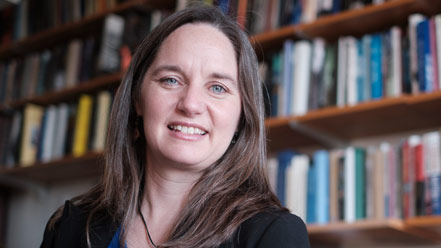
Erika DyckHistory Dr. Erika Dyck (PhD) is a historian of 20th-century health and medicine in Canada. She looks at how scientific research informs health-care policies, and how patients and health-care staff have shaped our understandings of what is healthy and what is ethical. She has published books and articles on psychedelic drug experimentation, eugenics, population control, reproductive justice, and the history of madness and mental health care. |
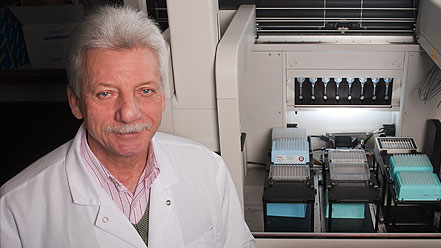
Mirek CyglerBiochemistry Dr. Mirek Cygler (PhD) is using the Canadian Light Source synchrotron to work on a new approach to combat disease-causing bacterial resistance. He is exploring a strategy that involves targeting only the bacteria’s ability to cause disease rather than just killing the whole pathogen, which will therefore reduce pressure to develop resistance. Cygler’s research will provide new ammunition in the war against antibiotic-resistant “super bugs” and could turn the tide against the bacteria. This Canada Research Chair is in an affiliated program with the College of Arts and Science. |
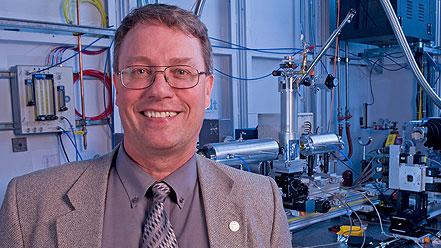
Graham GeorgeGeological Sciences Dr. Graham George (DPhil) is making extensive use of the high intensity X-ray beams produced by the Canadian Light Source synchrotron to analyze the molecular nature of metals and other heavy elements in living systems and the environment. He is focusing on the functional and toxic roles of elements such as sulfur, molybdenum and mercury. His work will provide new treatments and remediation strategies for heavy metal poisoning, and a better understanding of the roles played by metals and metalloids in living systems. |
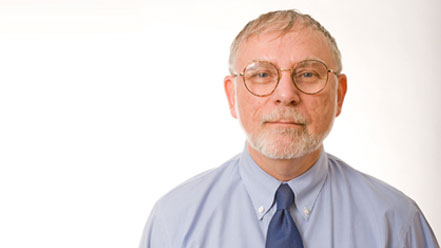
John GiesyToxicology Dr. John Giesy (PhD) tracks how contaminants move through an environment and what effects they have on humans and wildlife. As one of the world’s most cited environmental toxicologists, his research provides government and industry with the techniques and knowledge needed to create economic development without causing environmental harm. This Canada Research Chair is in an affiliated program with the College of Arts and Science. |
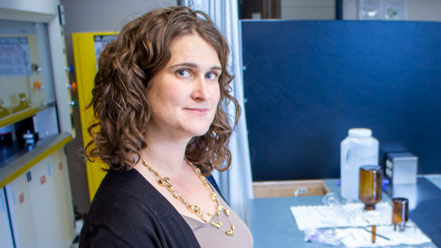
Tara KahanChemistry Dr. Tara Kahan (PhD) researches environmental pollutants in snow and ice that could affect people’s health, as well as air quality inside people’s homes. She investigates chemical transformations of pollutants in ice, as some environmental pollutants undergo different chemical reactions in snow and ice than in liquid water. The health effects of these pollutants may, therefore, be different in the presence of snow. Kahan also works to build a better understanding of the chemistry that affects air quality in houses, cars and the workplace. |
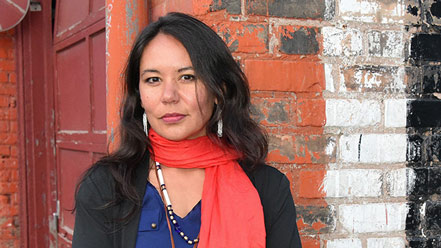
Michelle Johnson-JenningsIndigenous Studies Dr. Michelle Johnson-Jennings (PhD) engages Indigenous communities around food and land-based healing practices that reduce addiction and obesity risks and promote well-being. Research has found that being on the land affects the brain positively and produces lifelong behavioural changes. Johnson-Jennings, a Choctaw Nation Enrolled Tribal Member, investigates whether Indigenous groups heal more swiftly and experience longer-lasting change if health interventions are made on the land. By engaging Indigenous communities in Canada, the U.S. and New Zealand, Johnson-Jennings will develop a global approach to land-based healing. |
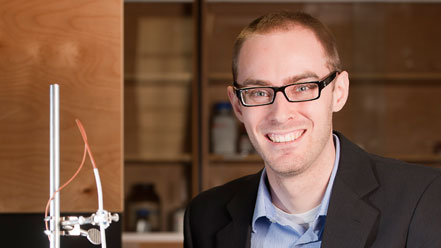
Timothy KellyChemistry Photovoltaic devices, also known as solar cells, are the most direct way of producing electricity from sunlight. Dr. Tim Kelly (PhD) is improving the efficiency of organic solar cells with the goal of providing an affordable way to produce electricity from the sun. Current silicon-based devices are efficient but expensive to manufacture, and organic cells are more economical but less efficient. Kelly is working to increase the performance of organic solar cells in order to make solar energy a more viable energy option. |
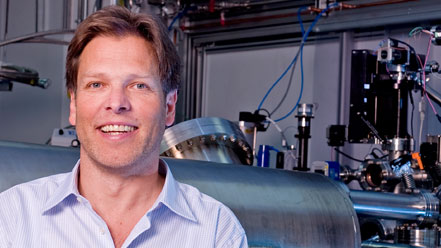
Alexander MoewesPhysics and Engineering Physics Dr. Alex Moewes (PhD) uses the Canadian Light Source to answer key questions regarding the electronic structure of advanced materials. He is also pushing into the new field of spintronics, which tries to control how electrons spin and to use that spin to store information. This research will dramatically increase the processing speed and storage capacity of computers, and is the foundation for new materials and devices. |
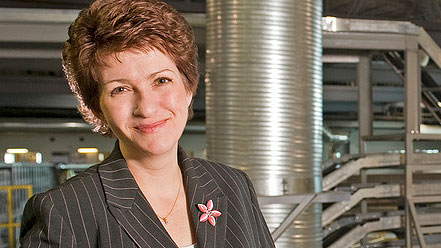
Ingrid PickeringGeological Sciences Dr. Ingrid Pickering (PhD) uses the Canadian Light Source synchrotron to examine how elements such as arsenic and selenium interact at the molecular level in the environment and within living organisms. This research will provide a foundation for remediation strategies in contaminated areas. It will also facilitate the possible use of plants to remove toxic elements from contaminated soil or water and is contributing to international efforts to ameliorate the effects of groundwater contamination in Bangladesh. |
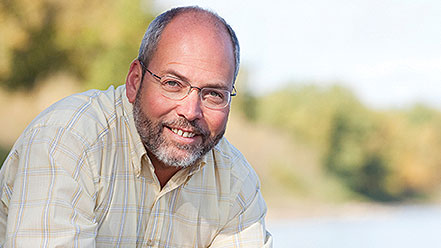
John W. PomeroyGeography and Planning Dr. John Pomeroy (PhD) addresses water resource and related climate issues that are critical to managing the environment and sustaining society in western and northern Canada. His work is leading to improved predictive models of water supply specifically designed to help people living in these regions prepare for and adapt to the effects of extreme events, climate change, growing populations and changing forestry and agricultural practices. |
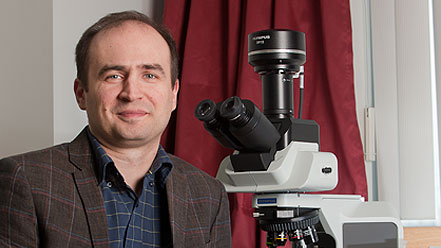
Bogdan PopescuAnatomy and Cell Biology Dr. Bogdan Popescu (PhD, MD) is combining tissue preparation and microscopy techniques with the power of synchrotron light to explore the role of metals in the health of oligodendrocytes—specialized cells that manufacture and maintain myelin. Myelin, the insulation for nerves in the brain, is destroyed by multiple sclerosis (MS). Popescu’s research in metal metabolism could lead to identification of possible targets for new drugs and treatments for MS. This Canada Research Chair is in an affiliated program with the College of Arts and Science. |
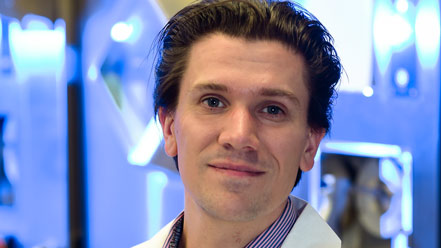
Eric PriceChemistry Dr. Eric Price (PhD) is leading work on developing new chemical tools to enable a new generation of medical imaging technology and “smart” drugs for cancer imaging and treatment. He seeks to create drugs able to selectively target cancer cells while sparing healthy cells, which could improve early detection, cancer cure rates and reduce side effects compared with traditional chemotherapy. This interdisciplinary research spans chemistry, radiochemistry and nuclear medicine, cancer biology and clinical translation. |
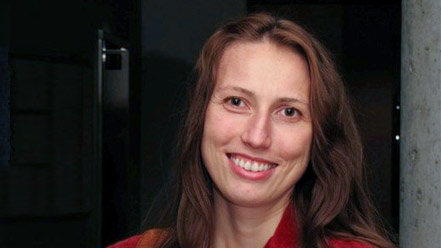
Natalia StakhanovaComputer Science Dr. Natalia Stakhanova (PhD) studies the digital identity of human adversaries and their behaviour behind cyberattacks. She investigates methods to track and analyze the digital identity of an adversary, examines strategies commonly deployed by adversaries to disguise their behaviour and designs techniques for identifying and understanding malware and legitimate software. Stakhanova’s research goal is to enable scientific exploration of adversarial communities and to provide security practitioners with the tools to predict and detect threats. |
Additional Research Chairs |
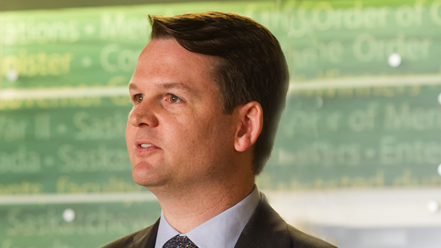
Matthew LindsayGeological Sciences Dr. Matthew Lindsay (PhD) is an environmental geochemist whose research is largely focused on understanding processes and conditions that control water quality in mining environments. Information derived from this research program will serve as the foundation for geochemical and conceptual models of oil sands mine closure landscapes and will support ongoing closure planning. |

Colleen Anne DellSociology Grounded in an empowering and community-based participatory approach, the research of Dr. Colleen Anne Dell (PhD) focuses on wellness, with specific attention to animal-assisted interventions, addictions and mental health. She has several therapy dogs and a service dog who are involved alongside her and various community and academic partners in studies examining how the human-animal bond, and more specifically animal-assisted interventions, can help enrich wellness among individuals and communities. This ranges from addictions treatment facilities through to university and criminal justice institutions. |
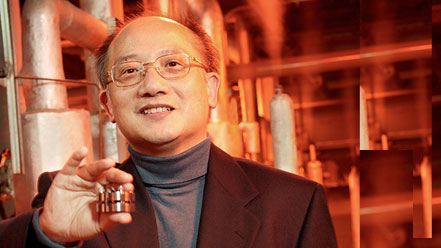
John TsePhysics and Engineering Physics Dr. John Tse (PhD, DSc) uses the Canadian Light Source synchrotron to explore the nature of compounds and how they behave under extreme pressure, how materials conduct energy, and how electrons behave within materials. His work is leading to better understanding of advanced materials for use in hydrogen and electricity storage as well as the space industry and aircraft manufacturing. |